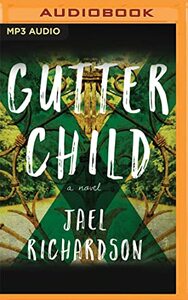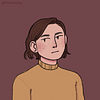Take a photo of a barcode or cover
Moderate: Racism, Slavery, Suicide, Colonisation, Classism
Minor: Adult/minor relationship, Child death, Death, Emotional abuse, Genocide, Miscarriage, Physical abuse, Racism, Sexism, Forced institutionalization, Trafficking, Grief, Death of parent, Pregnancy, Colonisation, Injury/Injury detail, Deportation
As for the story, it's pretty disjointed and contains a LOT of
"You're beautiful," he whispers.
I smile with my lips pressed tightly together, pain pressing between my legs. I open my mouth, ready to scream or cry, or shout for him to stop, but I clasp my hand over my lips and hold it back in instead.
I was expecting this to be treated as the violation that it was, but nope... Come on man I thought we were past this as a society! And then of course she
Also maybe I'm dumb but I never really understood the intricacies of the economics in this world. Do Sossi children have extra debt just from being born? If not then shouldn't they get redemption freedom whenever their parents do because their parents have no debt to pass on to them? So why is it only children under 5?
Also it seems like the "subs" objectively have the right idea since there's no chance of getting out of debt anyways and they get to stay with their families. They aren't portrayed as that badly off either? They even have extra money lying around to get the protagonist to pick up their checks for them lol. But somehow the protagonist never stops believing it's "shameful" to take money from the government which is actively making up reasons to steal from people like her. It really made me wonder what the author was trying to say about welfare like this was so strange.
And don't met me started on the Woman Who Wept thing which they threw in during the last 50 pages.
Graphic: Racism
Moderate: Child death, Rape, Sexual assault, Slavery, Suicide, Pregnancy, Colonisation
Minor: Adult/minor relationship, Alcoholism, Domestic abuse, Miscarriage, Trafficking, Death of parent, Injury/Injury detail
Elimina was taken out of the Gutter and lived with her Mother on the Mainland. When the Mother dies, she’s taken to an Academy, where she learns she has a debt which she’ll likely never pay, and she doesn’t belong in the Mainland or in the Gutter.
Her friends face their own fates, but she eventually becomes pregnant, then escapes to the Gutter with her baby instead of having him surrendered to the state, which other girls faced.
In the Gutter, she finds some family and is reunited with some friends, but also discovers the Network that’s trying to fight for freedom.
I like that this story isn’t tied up with a happy bow, or with a finality, but with an unknown, an ongoing fight.
I felt the rage of helplessness for the Gutter people, stuck in a system that keeps them down for no reason. There are themes similar to the experience of indigenous people in our society, and the perceived violence and threat by Gutter people, again, is much like the plight of BIPOC in general.
It’s a sad truth, but is presented with a layer of fiction that still gets the point across well.
GPL
This book pulled me in from the very beginning, I couldn't put it down.
Graphic: Child abuse, Racism
A painful story set in a fictional world where the indigenous population has been segregated and forced to pay their colonizers a life debt that springs from a lost rebellion fought generations ago.
Refelecting heavily on our own experience with Western colonization, the Mainlanders in Gutter Child have created and enforce a society where the invisible chains of systemic racism are made manifest, and the existential debt levied on the indigenous people of colour (or "Gutters") is made real and accountable.
None of the things that happen to the main character, Elimina, will seem too far fetched. Richardson has taken what we now see as the familiar and insidious results of colonization on indigenous and people of colour, and simplified them down to their most basic elements of systemic racism and poverty, and loss of individual and cultural identity.
But it isn't all sadness. Elimina's journey causes her to reevaluate and, in many cases, reinvent her identity. I loved a particular chapter where Elimina has her hair done for the first time, and the woman issues an invitation to her look for beauty in her own reflection rather than the reflection of others.
This is also a story about creating family and a sense of home as a key aspect of finding identity. In the end, Elimina finds that she has the power to make this happen, and she doesn't need to fulfill someone else's idea of her in order to find freedom and be happy.
Gutter Child is simple yet complicated, difficult and painful yet ultimately filled with hope and love.






